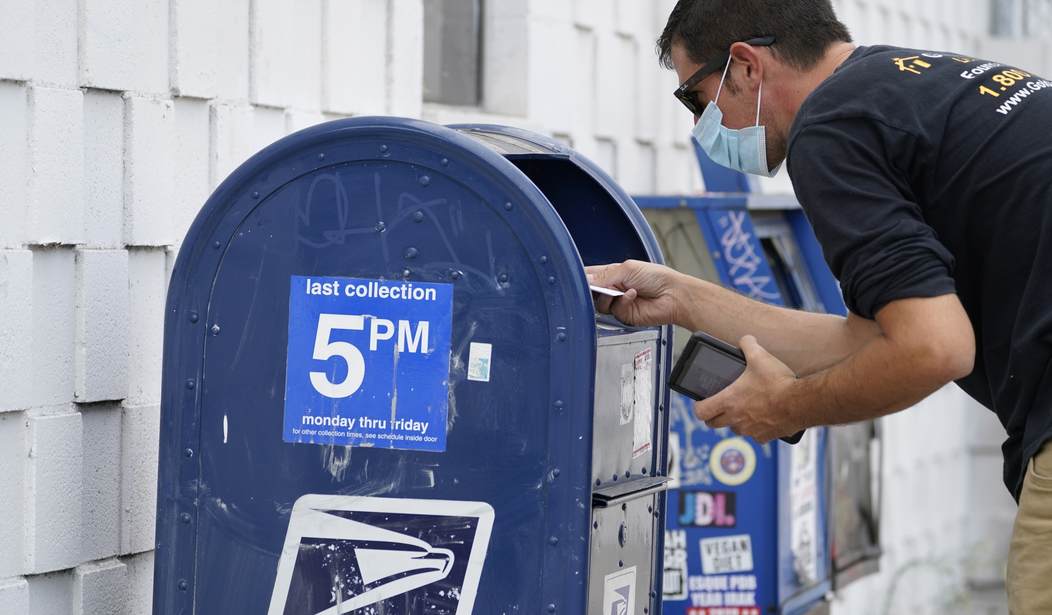Even though Congress is currently considering a bill marketed as a reform of the U.S. Postal Service (USPS), don’t expect your service to get any better, and if you live in a rural area, expect it to get even slower.
It has always been a complaint of mine that the title of a bill defines the perception of the content of the bill. It’s hard for politicians to oppose updates to the Clean Water Act or the Clean Air Act, even if they have good reasons to oppose the actual changes to the law.
Right now, we are seeing something similar in the U.S. Senate. The Senate is considering the Postal Service Reform Act of 2021, aka H.R. 3076, in the next week. Some Republicans seem to have been fooled into thinking this is a real reform bill thanks to its name, while Democrats are giddy that they may be able to pass this back-door bailout of unfunded USPS liabilities.
The legislation would remove the requirement that the USPS fund retiree health benefits, and force employees into the soon-to-be insolvent Medicare program. According to The Wall Street Journal, as of Feb. 17, 2022, “about 8% of postal retirees aren’t signed up for Medicare Part A, and 24% aren’t on Part B, per a recent report by the Government Accountability Office. The House bill would force future retirees to join.” The problem, the Journal points out, is that “the Medicare trust fund for Part A is expected to be insolvent in 2026.” And this bill would impose a new $60-billion hit to Medicare. Interpreted into real-world ramifications, H.R. 3076 will take liabilities off the books of the USPS and put them right onto the backs of taxpayers.
The USPS has not been making any payments to fund retirees’ healthcare anyway, so this proposed change in the law is only a reform on paper. Both Republicans and Democrats are very sensitive to any reform that harms Medicare, Medicaid, or Social Security because voters who are dependent on these programs pay attention to changes. Politicians who vote to expedite the insolvency of Medicare mere months away from the midterm elections are reckless at best and politically suicidal at worst. Add in the large voting block of postal employees who will not be pleased when they find out they are getting dumped into Medicare after being promised a retirement with superior health care, and this bill, if passed, will haunt supporting legislators at the ballot box in November.
For Our VIPs: Biden’s Vaccine Mandate Undermining U.S. Postal Service
All of this begs the question: has anybody in Congress read the bill? The Congressional Budget Office (CBO) gave the bill a good overall score because postal retirees were shifted from one account to another, but no rational politician can believe it a good idea to add liabilities to Medicare when the program is so close to a tipping point. Republicans who campaign on fiscal responsibility and balancing the budget might want to impose real reform on the postal service instead of this illusory fix.
Another provision of H.R. 3076 that one would think would send Democrats into a fury codifies Postal Commissioner Louis DeJoy’s plan to slow rural delivery. But section 208 of the bill adds the words “cost effective” as a priority, allowing DeJoy the flexibility to slow service to rural areas. Back on Aug. 17, 2020, Senate Majority Leader Chuck Schumer (D-N.Y.) promised to “drive new legislation that would … undo the changes slowing down the mail.” Fast forward to Feb. 14, 2022, and Schumer was saying, “this bipartisan reform bill will make sure Americans can continue relying on the post office the same way they’ve relied on it all their lives.” What he doesn’t mention is that this bipartisan bill will “slow down the mail.” Democrats seem to have made the calculation that the bailout of USPS health care liabilities is good enough for them to go back on their promise not to allow DeJoy to slow down the mail.
Opposition from Republicans should be a no-brainer. Rural state Republicans like Sens. John Thune (R-S.D.), John Barrasso (R-Wyo.), and Joni Ernst (R-Iowa) can oppose the bill based on the issue of slowing mail to rural constituents and the fiscal harm to Medicare. Conservative Sens. Rick Scott (R-Fla.), Rand Paul (R-Ky.), and Mike Lee (R-Utah) are safe to oppose the bill because its promise of reform is empty. And Senate Homeland Security members Sens. Ron Johnson (R-Wis.), James Lankford (R-Okla.), and Josh Hawley (R-Mo.) should be angry that they have not had a chance to add teeth to the reforms proposed to the USPS.









Join the conversation as a VIP Member